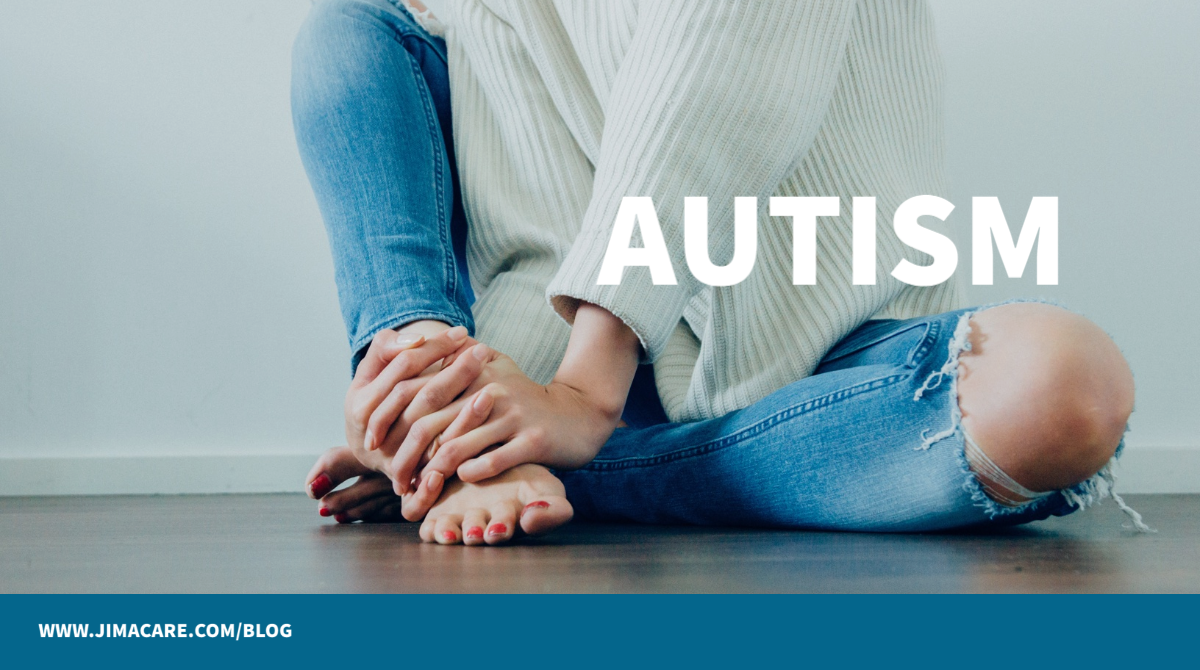Autism also called Autism Spectrum disorder (ASD) is a broad term used to describe a group of neurodevelopment disorders. These disorders are characterised by problems with communication and social interaction. In most cases, people with autism demonstrate restricted, stereotyped and repetitive interests or pattern of behaviour.
ASD is found in individuals around the world, regardless of race, culture or economic background. According to the Centre for Disease Control and Prevention(CDC), ASD occurs more often in boys than in girls, with a 4 to 1 male-to-female ratio. Rise in ASD cases are attributed to environmental and genetic factors according to some analysts. However, experts debate whether there's an actual increase in cases or just more frequent diagnosis.
SYMPTOMS
Autism symptoms typically become clearly evident during early childhood, between age 12 and 24months. However, symptoms may include a marked delay in language or social development.
The Diagnostic and Statistical Manual of mental disorders(DSM) published by the American Pychiatric Association(APA) divides symptoms of autism into two categories; problems with communication and social interaction and restricted or repetitive pattern of behaviour or activities.
Several factors may influence the development of autism and it's often accompanied by sensory sensitiveness and medical issues such as gastrointestinal (GI) disorders, seizures or sleep disorders as well as mental health challenges such as anxiety, attention issues and depression.
However, common symptoms of autism include;
* Lack of eye contact.
* A narrow range of interest or intense interest in certain topics.
* High sensitivity to sounds, touches, smells or sights that seem ordinary to other people.
* Doing something over and over like repeating words or phrases, rocking back and forth or flipping a lever.
* Not wanting to be held or cuddled.
* Problems with understanding or using speech, gestures, facial expressions or tone of voice.
* Talking in a sing-song, flat or robotic voice.
* Trouble adapting to changes in routine.
Some children with autism may also have seizures. This might not start until adolescence.
Here are types of ASD common among children.
Asperger's Syndromes
Under this category, children don't have problem with language. Infact, they tend to score in the average or above average range on intelligence tests but they have social problems and a normal scope of interests.
Autistic Disorder
This is what most people think of when they hear the word autism. It refers to problem with social interaction, communication and play in children under 3.
Childhood Disintegrative Disorder
These children have a typical development for at least 2years and then lose some or most of their communication and social skills
Pervasive Developmental Disorder(PDD or Atypical Autism)
Your doctor might use this term if your child has some autistic behaviour like delays in social and communication skills but doesn't fit into another category.
CAUSES OF AUTISM
Exactly what causes autism isn't clear. It could stem from problems in parts of your brain that interprets sensory input and process language. Family, income, lifestyle, educational background, race, ethnicity or social background doesn't affect child's risk of autism.
As it runs in families, certain combination of genes may increase a child's risk. Also, a child with older parents has a higher risk of autism. Pegnant women who are exposed to certain drugs or chemicals, like alcohol or anti-seizure medications are more likely to have autistic children. Other risk factors include maternal metabolic conditions such as diabetes and obesity. Research has also linked autism to untreated phenylketonuria also called PKU, a metabolic disorder caused by absence of an enzyme and rubella(German measles).
Obviously, there's no proof that vaccination can cause autism.
SCREENING AND DIAGNOSIS
It can be difficult to get a definite diagnosis of autism. Your doctor will focus on behaviour and development. Hence, there are always two steps of diagnosis on children;
1. Developmental Screening
This tells your doctor if your child is on track with basic skills like learning, speaking, behaviour and moving. Experts suggest that child should be screened during their checkups at 9months, 18months, 24months and 30months.
2. If your child shows signs of a problem on the screenings, they'll need a more complete evaluation. This may include hearing, vision, or genetic test.
There's no cure for autism but early treatment can make a big difference in development for a child with autism. If you think your child shows symptoms of ASD, tell your doctor as soon as possible. Your doctor should tailor treatment for your child. The treatment varies from one individual to another owing to different levels and symptoms.
TREATMENT
There are two basic treatments for autism;
1. Behavioural and Communication Therapy
This helps with structure and organization. Applied Behavioural Analysis(ABA) is one of these treatments. They promote positive behaviour and discourages negative ones. Others include occupational, sensory integration and speech therapies.
2. Medications
Medicarions to help with symptoms of ASD like anxiety, attention problems or hyperactivity. It's also advisable to talk to your doctor before trying something different like a speed diet.
References:
* Healthline Media
* Autismspeaks
* WebMD

